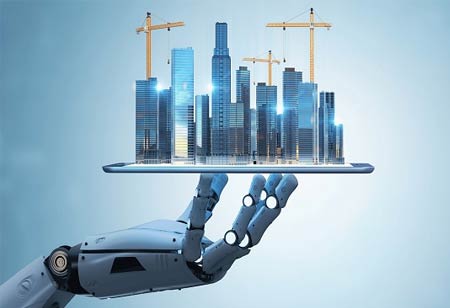Thank you for Subscribing to Construction Business Review Weekly Brief
Specials
- MEP Canada
- Kitchen and Bath
- Decking Canada
- Architectural Glass Europe
- MEP APAC
- Construction Saudi Arabia
- German Apartment and Condominium Contractors
- Construction Law APAC
- Outdoor Construction
- Foundation Construction Canada
- Building Sealing Solutions Europe
- Apartment and Condominium Contractors Canada
- Cold Storage Construction APAC
- Precast Concrete Europe
- Construction Staffing Europe
- Pre-Construction Services
- Flooring System APAC
- Scaffolding Canada
- Swimming Pool Construction Canada
- Construction Management Canada
- Dummy
- Building Restoration and Maintenance Canada
- Residential Construction
- Concrete Canada
- Construction Cladding Europe
- Construction Cladding APAC
- Concretes, Aggregates and Construction Materials APAC
- Concretes, Aggregates and Construction Materials Europe
- Commercial Contractors Europe
- Commercial Contractors APAC
- Cold Storage Construction Canada
- Flooring Systems Europe
- Construction Management APAC
- Landscaping Canada
- Construction Coating Europe
- Construction Tech Startups Europe
- Insulation Services Europe
- Mechanical Contractor Canada
- Mould Remediation and Testing Europe
- Swimming Pool Construction APAC
- Construction Engineering Services
- Mechanical Electrical and Plumbing
- Roofing Systems Europe
- Architectural Glass APAC
- Startups APAC
- Forensic and Owners Representative
- Flooring System
- Waterproofing APAC
- Wall Systems
- Safety and Compliance Europe
- Construction Bidding and Auctions
- Modular and Prefab Construction
- Architectural Glass
- Construction MENA
- Construction Demolition and Recycling Europe
- Modular Construction Europe
- Construction Interiors
- Steel Building APAC
- HVAC
- Doors and windows
- Modular Construction APAC
- Insulation, Coating and Waterproofing
- Building Information Modeling APAC
- Sustainable Construction APAC
- Building Restoration and Maintenance
- Commercial Contractors
- Specialty Construction
- Construction Engineering Canada
- Construction Engineering MENA
- Modular Construction Canada
- Roofing and Siding Systems
- Construction Latam
- Workforce Management and Staffing
- Roofing Systems APAC
- Construction Consulting
- Steel Building Europe
- Construction Demolition and Recycling APAC
- Safety and Compliance APAC
- Concretes, Aggregates and Materials
- Construction Cladding
Navigating Construction's New Frontier: Embracing Innovation and Sustainability
The construction management sector is changing radically as it adjusts to new technologies, consumer needs, and legal requirements.

By
Construction Business Review | Monday, March 24, 2025
Stay ahead of the industry with exclusive feature stories on the top companies, expert insights and the latest news delivered straight to your inbox. Subscribe today.
The construction management sector is changing radically as it adjusts to new technologies, consumer needs, and legal requirements. Businesses in this industry are overcoming several obstacles while seizing significant chances to innovate and improve operational effectiveness. As the industry develops, construction management companies play a more critical role than ever, focusing on enhancing project delivery, optimizing operations, and tackling environmental issues.
Building Beyond Challenges: Navigating the Future of Construction Management
The construction management sector needs to overcome several obstacles to keep moving forward. Rising material costs and a labor shortage are two of the most urgent problems. Rising material costs are directly impacting project timetables and budgets. For instance, delays and unanticipated costs may result from changes in the supply of raw materials like steel and lumber. A major barrier is the lack of trained personnel, which makes it difficult for the sector to attract and retain talent, particularly in areas where development is increasing.
Furthermore, building projects are becoming more complex. Many parties are involved in modern projects, and it can quickly become difficult to coordinate the work of architects, engineers, contractors, and clients. Project delays and cost overruns can result from poor communication, misaligned objectives, or delayed decision-making. For construction management organizations, effectively handling construction projects' growing complexity and scale is a critical duty.
The increasing focus on sustainability also poses a serious problem. Due to growing regulatory demands and elevated societal standards, construction companies are expected to incorporate sustainable practices into every aspect of their operations. This includes using cutting-edge technologies, reducing carbon footprints, and utilizing green building materials. Businesses must adhere to environmental regulations and accommodate the growing demand for environmentally friendly products. Innovation is needed to balance project costs, timelines, and sustainability objectives.
Innovating Through Technology: Transforming Construction Management
Construction management firms are adopting cutting-edge techniques and technology to improve productivity in response to these difficulties. One of the biggest developments is the adoption of building information modeling (BIM). BIM lowers errors and promotes proactive problem-solving by facilitating more accurate planning and real-time stakeholder participation. Project managers can use BIM to see the project in a digital format, foresee any obstacles, and make changes before issues occur, which reduces delays and cost overruns.
Robotics and automation are also changing the construction industry. Robots are increasingly performing tasks like excavating, welding, and bricklaying. Automation provides a reliable and effective workforce for some jobs, addressing labor shortages. This speeds up the building process and raises the caliber of the finished product. On the other hand, drones are essential for site surveys and project monitoring since they offer real-time data and improve decision-making at every project stage.
Integrating sustainability throughout the building process is another significant breakthrough. Sustainable materials and waste reduction are two examples of eco-friendly practices that construction companies are prioritizing more. Green building certifications like LEED, a substantial factor in long-term cost savings, particularly in energy efficiency and operating costs, are now a top priority for many businesses. It is becoming more popular to incorporate renewable energy sources, such as wind and solar, into building designs to provide energy-efficient projects that support sustainability objectives.
Sustainability and Smart Construction: Shaping the Future Landscape
As the construction management industry adjusts to changing market conditions, it stands to benefit from several exciting prospects. The development of smart buildings is one of the most critical growth sectors. Using Internet of Things (IoT) devices on construction sites enables improved inventory management, worker safety, and equipment monitoring. Because of this connectedness, project managers can monitor developments in real-time, which enhances decision-making and increases responsiveness.
Urbanization is also driving the need for infrastructure development. When cities grow, there are many prospects for construction management companies because of significant projects like utilities, residential complexes, and public transportation networks. The need for green construction initiatives is rising as sustainability concerns increase. These trends will probably support the industry's expansion as sustainable construction methods gain traction in the public and private sectors.
Another significant advancement possibility is the digitization of the construction sector. Artificial Intelligence (AI), data analytics, and cloud-based project management technologies are revolutionizing how construction projects are managed. While data analytics optimizes scheduling, resource allocation, and risk management, artificial intelligence (AI) aids in predictive analytics to foresee possible delays or budget overruns. By incorporating these tools, project delivery times are being improved, costs are being decreased, and overall operational performance is improving.
The industry has always prioritized safety, and new developments are greatly improving site conditions. To prevent mishaps, wearable technology is monitoring employees' health indicators, identifying potentially dangerous situations, and sending out real-time alerts. In addition to enhancing worker safety, these developments are assisting businesses in adhering to ever-tougher safety standards.





